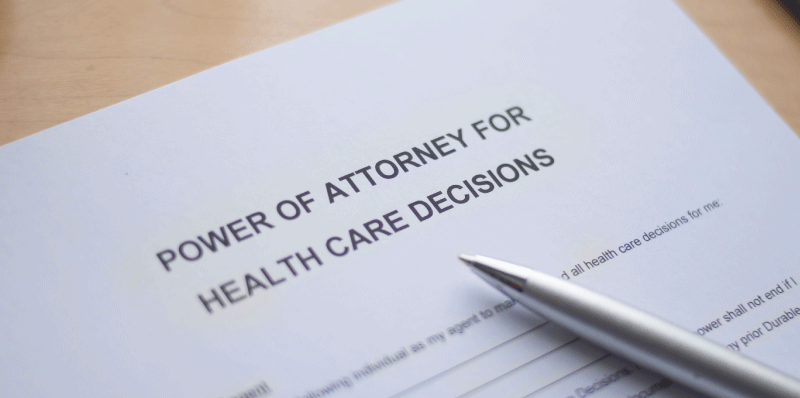Understanding the importance of a Power of Attorney (POA), how it works, and why it’s a critical component of elder care planning is essential for anyone looking to secure their health care wishes and relieve the burden on their loved ones during difficult times.
What is a Power of Attorney?
A Power of Attorney is a legal document that grants authority to an appointed person to make healthcare decisions on behalf of the grantor, should they become incapacitated or unable to make decisions for themselves. This includes decisions on medical treatments, surgical procedures, artificial nutrition, and other health care measures. The chosen agent, typically a trusted family member or friend, has the legal authority to speak with doctors, access medical records, and make critical healthcare decisions based on the preferences and values of the person appointing them.
The Importance of a Power of Attorney in Healthcare Decisions
- Ensures Your Wishes Are Honored: The foremost importance of a Power of Attorney in health care decisions is that it ensures your health care wishes are respected and followed. By selecting an agent who understands your values and desires regarding medical treatment, you can have peace of mind knowing that healthcare decisions will align with your preferences.
- Avoids Family Conflicts: When you become incapacitated without a POA in place, family members may disagree on the best course of action for your health care. By appointing a POA, you can prevent potential conflicts and ensure that there is a clear decision-maker for your healthcare needs.
- Facilitates Timely Decisions: In emergencies, having a POA allows for swift decision-making. Hospitals and doctors will know whom to consult for health care decisions, avoiding delays that could occur while determining legal guardianship or while family members try to reach a consensus.
- Comprehensive Control Over Health Care Decisions: A health care POA can be as broad or as specific as you like, giving you control over what medical treatments you would or would not want. This can include decisions about life support, resuscitation, and pain management, among others.
- An Essential Component of Elder Care Planning: As individuals age, the likelihood of requiring medical interventions increases. The importance of a Power of Attorney in ensuring that elder care decisions are made with dignity and respect cannot be overstated. It’s an essential tool in elder care planning, providing clarity and direction during challenging times.
How to Establish a Power of Attorney for Health Care
Establishing a POA for health care involves selecting a trusted individual as your agent and legally documenting your decision. It is strongly recommended that if you want to establish a POA that you should consult with an experienced elder law or estate planner to ensure the document meets state requirements and accurately reflects your wishes. Discussing your values and medical preferences with your chosen agent is crucial to ensure they are prepared to make decisions that align with your beliefs.
The importance of a Power of Attorney for health care decisions extends far beyond the legal document itself. It’s about ensuring your healthcare wishes are respected, preventing family conflicts, and facilitating prompt decision-making in critical situations. As part of comprehensive elder care planning, a POA for health care is indispensable in protecting your rights and dignity in medical situations. With Rothkoff Law Group, we can help you navigate the complexities of health care and elder care together by helping you to understand and establish a Power of Attorney. If you live in the Southern New Jersey or Philadelphia region and are ready for peace of mind both for yourself and your loved ones, contact us today.


